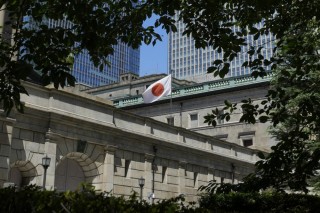Loading
Search
▼ BOJ Deputy Chief Supports Rate Hikes, Warns Of Upcoming Tariff Impact
- Category:Other
A Bank of Japan deputy chief said Tuesday it would be "appropriate" to keep raising interest rates in step with improvements in economic conditions but warned of the possible negative impact of higher U.S. tariffs.
Despite three policy interest rate hikes since last March, "real interest rates have remained at significantly low levels as inflation has remained strong," said BOJ Deputy Governor Ryozo Himino in a speech in Kushiro, Hokkaido.
He said that the current inflation rate considerably exceeds the central bank's 2 percent target due to rising prices of rice and other items, but it is likely to decline as temporary factors recede and eventually stabilize at levels consistent with the goal.
"Risk and uncertainty will never disappear from the landscape for policymakers. We must continually assess the balance of risks, both upside and downside, and respond in a timely and appropriate manner," Himino said.
Regarding the potential impact of U.S. tariffs on the economy, Himino described the July agreement to reduce tariff rates as "a major step forward," yet he cautioned that "the global economy still faces a heightened level of uncertainty."
"Our baseline scenario assumes that the effects of trade policies will eventually materialize, leading to a slowdown in overseas economies and a decline in domestic corporate profits," Himino said.
Market players have been paying attention to when the BOJ will resume raising rates after holding its key rate at around 0.5 percent for the fourth consecutive meeting in July, citing the need to assess the impact of U.S. President Donald Trump's aggressive trade policies.
The BOJ is scheduled to hold its next two-day policy meeting starting Sept 18.
Despite three policy interest rate hikes since last March, "real interest rates have remained at significantly low levels as inflation has remained strong," said BOJ Deputy Governor Ryozo Himino in a speech in Kushiro, Hokkaido.
He said that the current inflation rate considerably exceeds the central bank's 2 percent target due to rising prices of rice and other items, but it is likely to decline as temporary factors recede and eventually stabilize at levels consistent with the goal.
"Risk and uncertainty will never disappear from the landscape for policymakers. We must continually assess the balance of risks, both upside and downside, and respond in a timely and appropriate manner," Himino said.
Regarding the potential impact of U.S. tariffs on the economy, Himino described the July agreement to reduce tariff rates as "a major step forward," yet he cautioned that "the global economy still faces a heightened level of uncertainty."
"Our baseline scenario assumes that the effects of trade policies will eventually materialize, leading to a slowdown in overseas economies and a decline in domestic corporate profits," Himino said.
Market players have been paying attention to when the BOJ will resume raising rates after holding its key rate at around 0.5 percent for the fourth consecutive meeting in July, citing the need to assess the impact of U.S. President Donald Trump's aggressive trade policies.
The BOJ is scheduled to hold its next two-day policy meeting starting Sept 18.
- September 3, 2025
- Comment (0)
- Trackback(0)


